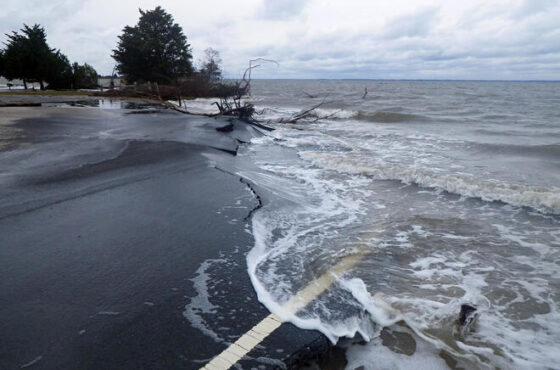DOE Plan to Prop Up Coal and Nuclear Gets Little Support
Published by the Natural Resources Defense Fund
The clock is ticking for the Federal Energy Regulatory Commission (FERC), the agency in charge of national electricity markets, to make a decision on a rushed proposal from the Trump-run Department of Energy (DOE) to massively subsidize underperforming coal and nuclear power plants, costing consumers billions. Today marks the close of the very short public comment period on the bailout, which has generated an overwhelmingly negative reaction.
Groups across the energy industry are responding to one another’s initial comments submitted two weeks ago in response to DOE’s proposal to FERC, which plans to make its decision by Dec. 11 (our initial comments are discussed here). NRDC is joining with Earthjustice, Environmental Defense Fund, Sierra Club and others in these “reply” comments (a link will be posted here after they are filed). As our comments emphasize, while a handful of interested parties linked to the coal and nuclear industries supported the proposal, none successfully countered its fundamental flaw: it orders customers to pay coal and nuclear plants extra money simply because they can keep 90 days’ worth of energy supply onsite (a requirement designed precisely because it benefits coal and nuclear), not because they are necessary to provide reliable or “resilient” grid service.
DOE’s proposal is a distraction
As my colleague Jennifer Chen laid out in a separate set of initial comments from NRDC (discussed here), a real process to investigate resilience would entail defining the term in a way that distinguishes it from reliability already accounted for by market rules, establishing metrics to measure it, and allowing resources to compete to deliver it in a technology-neutral manner.
The data indicates that resilience primarily depends on power delivery infrastructure like substations and power lines, so bailing out coal and nuclear units is the wrong approach. Just ask the citizens of Puerto Rico, who are suffering from a record-long blackout caused by downed power lines. The island’s only coal-fired generator sustained severe damage in the hurricanes but would have been little help in any case given the outage primarily stems from power delivery failure. DOE needs to focus more on real issues like those facing Puerto Rico and less on inventing new problems to rationalize expensive plans to save coal and nuclear power.

Downed power lines in Puerto Rico following Hurricane Maria
Federal Emergency Management Agency
Other bailout ideas should also be rejected
Although DOE’s extreme bailout might be dead on arrival at FERC, that hasn’t stopped industry lobbyists from offering other ideas for bailing out coal and nuclear. While most commenters opposed the DOE proposal, which even garnered opposition even from some in the nuclear and coal industries it benefits, many in those industries had other ideas for FERC to prop them up at consumers’ expense.
For example, Exelon (a larger owner of nuclear power plants) suggested that FERC order the nation’s largest grid operator, PJM, to change its market rules in a way that would send more money to expensive and inflexible power plants like coal and nuclear that have difficulty ramping their energy output up and down. Under the current rules of PJM’s competitive market, to supply energy, resources submit offers to meet demand and the offer from the last unit needed to meet demand sets the price for all sellers in the market. So, even if one unit offers to sell energy at $5 per megawatt hour for a given bidding period, it will earn $20 per megawatt hour for that period if that was the offer submitted by the last unit needed to meet demand.
Large inflexible coal and nuclear units are not eligible to set market prices in this fashion when they are more expensive than other potential suppliers, but continue to be near fully dispatched by the grid operator only because they are unable to ramp down quickly to more accurately meet customer needs. Exelon wants to reverse this rule. In other words, owners of nuclear and coal want to control market prices even when the only reason they are running close to full blast is that they cannot be turned down to provide less output.
The details are complex and not fully worked out, but the bottom line is that it appears to be another strategy to support coal and nuclear at customer expense. Our comments explain that FERC can’t legally adopt Exelon’s or other similar bailout suggestions as part of its consideration of the DOE proposal, since they have virtually no connection to the DOE proposal except that they all support coal and nuclear.
The best next steps? Just say no
Ultimately, DOE’s proposal is nothing more than an illegal plan to advance an expensive and ineffective solution to solve a non-existent crisis. Consumers, grid operators, and major sectors of the energy industry have overwhelmingly rejected the DOE’s blatant attempt to prop up uncompetitive coal and nuclear power. The proposed rule’s few supporters have failed to provide any evidence that FERC should move forward with this ill-considered scheme.
FERC should simply reject this proposal and other ideas that are fundamentally based on a desire to save expensive coal and nuclear generators rather than to better serve customers.
Related Blog Posts
Read the full article at: https://www.nrdc.org/experts/miles-farmer/doe-plan-prop-coal-and-nuclear-gets-little-support





